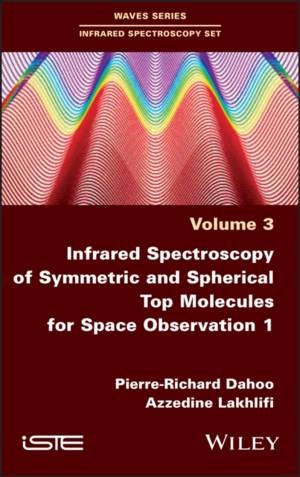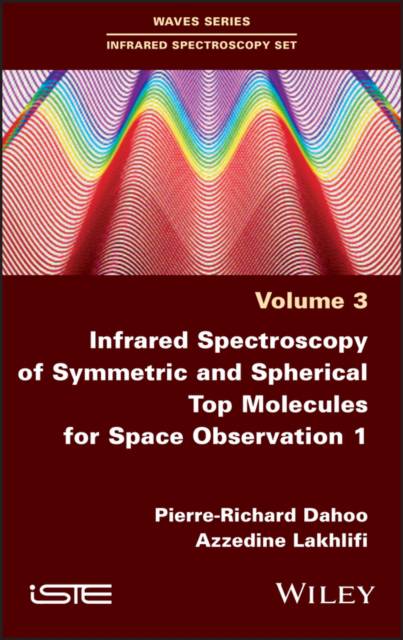
- Retrait gratuit dans votre magasin Club
- 7.000.000 titres dans notre catalogue
- Payer en toute sécurité
- Toujours un magasin près de chez vous
- Retrait gratuit dans votre magasin Club
- 7.000.0000 titres dans notre catalogue
- Payer en toute sécurité
- Toujours un magasin près de chez vous
Infrared Spectroscopy of Symmetric and Spherical Spindles for Space Observation 1
Pierre-Richard Dahoo, Azzedine LakhlifiDescription
Theoretical models based on the use of group theory are applied to rigid and non-rigid molecules, characterized by the phenomenon of tunneling and large amplitude motions. The calculation of vibration-rotation energy levels and the analysis of infrared transitions are applied to molecules of ammonia (NH3) and methane (CH4). The applications show how interactions at the molecular scale modify the near and mid-infrared spectra of isolated molecules, under the influence of the pressure of a nano-cage (the substitution site of a rare gas matrix, clathrate, fullerene or zeolite) or a surface, and allow us to identify the characteristics of the perturbing environment.
This book provides valuable support for teachers and researchers but is also intended for engineering students, working research engineers and Master�s and doctorate students.
Spécifications
Parties prenantes
- Auteur(s) :
- Editeur:
Contenu
- Nombre de pages :
- 288
- Langue:
- Anglais
Caractéristiques
- EAN:
- 9781786305688
- Date de parution :
- 25-05-21
- Format:
- Livre relié
- Format numérique:
- Genaaid
- Dimensions :
- 156 mm x 234 mm
- Poids :
- 580 g

Les avis
Nous publions uniquement les avis qui respectent les conditions requises. Consultez nos conditions pour les avis.






